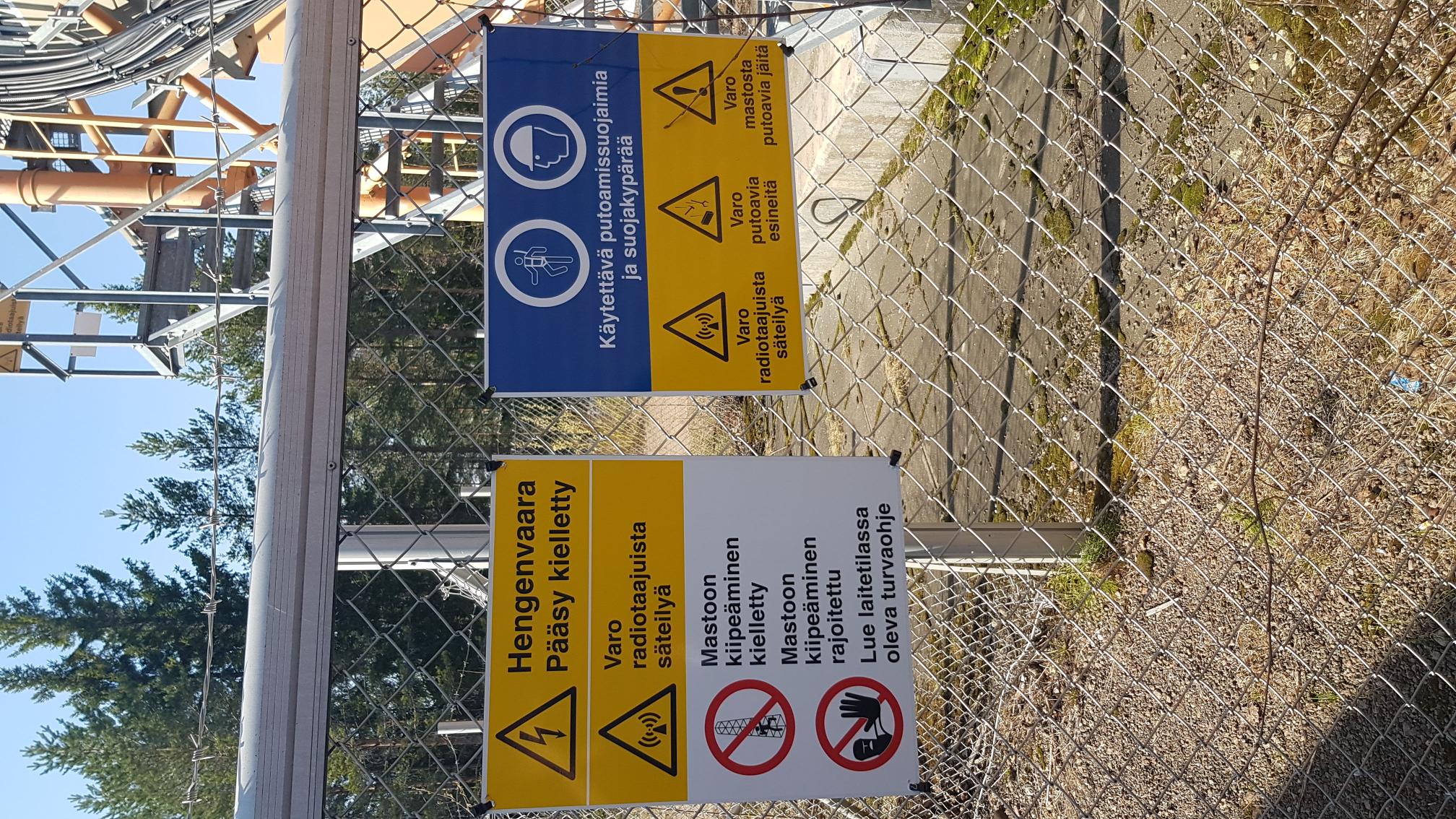Unauthorized mast-climbing can be deadly
This summer, there have been reports of young people climbing tall radio masts without permission. Digita and the police remind the public that climbing radio masts is life-threatening. Unauthorized climbers risk falling and exposure to hazardous radiation.
When climbing a tall mast, the risk of falling is significant, and varying weather conditions further increase the risk. Radio masts contain high-power transmitter antennas designed to deliver RF power over a wide area. In the mast, near the antennas, the radiation levels can be hazardous to human health.
“It is very important to understand that climbing a mast is life-threatening to your health without proper equipment and preparation. In addition to the risk of falling, there is a radiation hazard in the masts. Normally, radio-frequency (RF) radiation cannot be detected by human senses, as it penetrates the skin and directly affects the internal organs, causing, among other things, damage to the eyes. The adverse effects of radiation can manifest themselves in the long term,” says Elina Lehtomäki, SVP, Customer Services at Digita.
Jukka Penttonen, a Digita employee with eight years of experience working on masts, says: “I would absolutely never climb a mast without the proper permit, training, and safety gear. When climbing a mast to perform installations or maintenance, the transmitters are always switched off or their radiation output is significantly reduced so that it is safe to climb the mast. We also always use personal radiation detectors to alert us to any excessive radiation levels near us.”

Unauthorized mast-climbing can be deadly. Photo: Digita
Police report and liability for damages
Climbing a radio mast without permission is prohibited. In addition, it is life-threatening. Mast-climbers are always responsible for the damage they cause, Digita reiterates. Unauthorized climbing is always reported as a criminal offense.
“Climbing a mast without permission can constitute a crime, because it can block or disrupt radio communications. In addition, an emergency report made because of the climbing will require the police’s attention. The police has an obligation to intervene in an ongoing crime and in activities that endanger the climber, even if there were other things to do,” emphasizes police inspector Pekka Heikkinen.
In addition, Heikkinen points out that the authorities may have to interrupt radio and television broadcasts because of climbing, causing service outages and disabling public safety alarms. All in all, mast-climbing can directly or indirectly cause drastic damage and consequently, liability.
We should not ignore the fact that with the public’s awareness of water towers and masts being the target of criminal activity that may be connected to hybrid operations, the climbers may become suspects and face unforeseen consequences—so let’s leave the masts be.
socialShareGray




